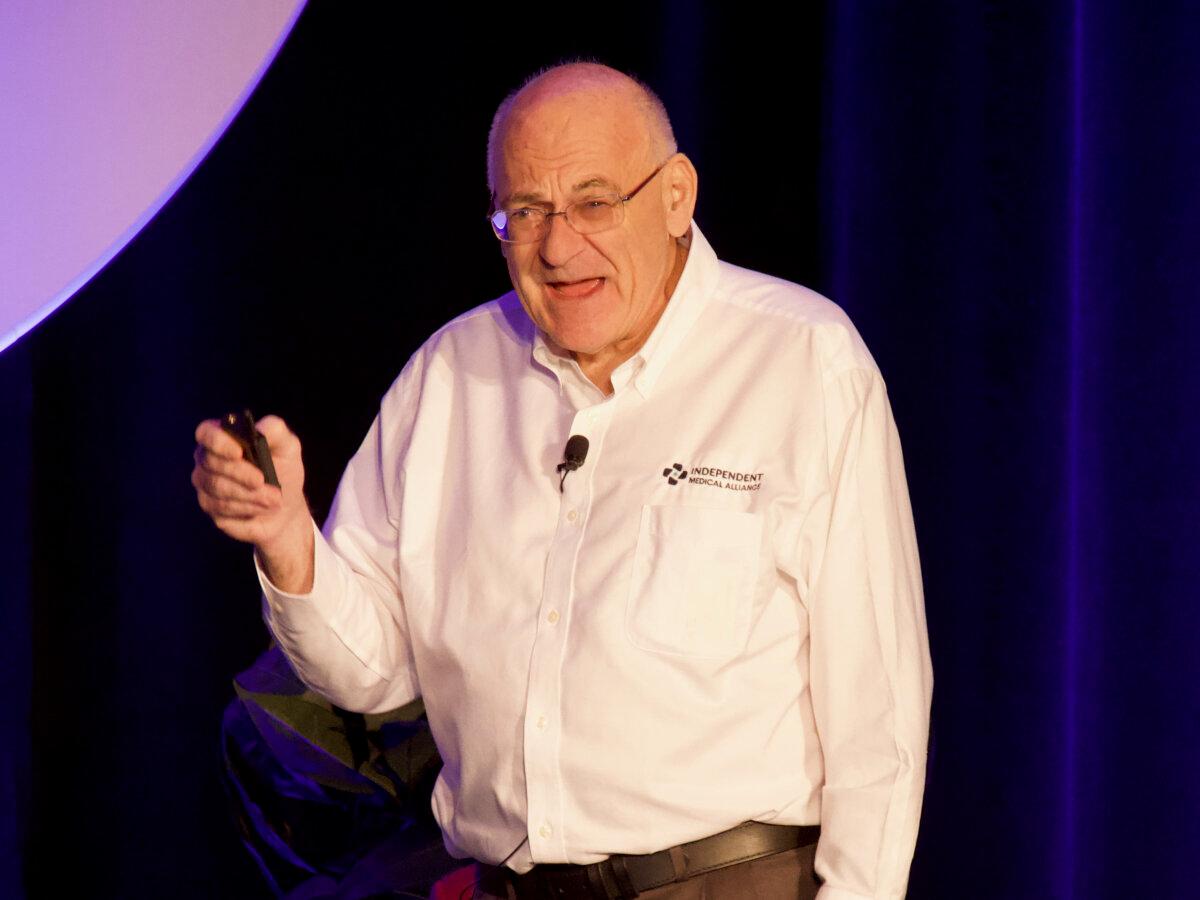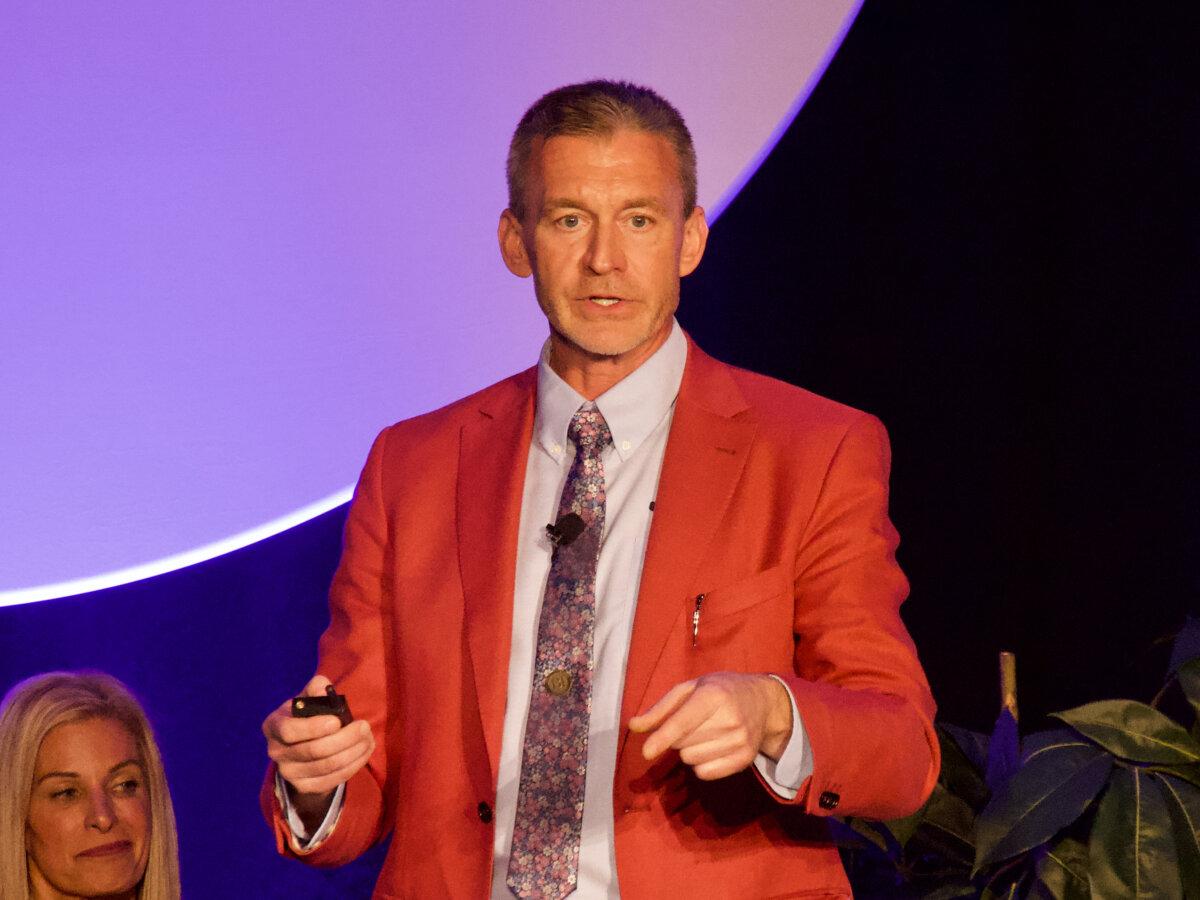Medical Experts Urge Increased Research into Growing Cancer Diagnosis Rates
Physicians are advocating for objective, evidence-based research to investigate innovative strategies in cancer studies and therapies.
ATLANTA—A group of medical professionals has expressed concern regarding the growing number of cancer cases observed over the past five years, urging for additional research to comprehend this trend better and proposing a fresh approach to treatment.
This conversation unfolded at the Independent Medical Alliance conference held in Atlanta, Georgia, from April 4–6, and was moderated by Jan Jekielek, senior editor for The Epoch Times and host of EpochTV’s “American Thought Leaders.”
“The concern arises when examining some of the urban data available,” stated Dr. Ray Page, an oncologist with three decades of experience. “During the COVID pandemic, I noticed unusual occurrences in my practice once the vaccines were introduced—things I had never encountered in 30 years of practice.”
Page referred to the “strange phenomena,” such as aggressive cancers and increased clotting incidents, as particularly alarming, stressing that restoring immune systems to balanced states is crucial.
“Ultimately, there’s nothing more effective than activating your natural immune system to combat cancer,” Page emphasized.
A prominent cancer investigator highlighted to the audience—which included numerous practicing medical professionals—that standard treatment techniques, like radiation and chemotherapy, do not tackle the root causes of malignant cells by eliminating the stem cells responsible for their formation.
“Radiotherapy not only fails to eradicate stem cells; it often stimulates their growth,” Dr. Paul Marik, chief medical officer for the alliance, explained during the session. “Neglecting the source means that just trimming the trees won’t prevent regrowth.”
A pathology specialist noted that traditional medical literature often overlooks the vast complexity of cancer, mentioning that the roughly eight billion people worldwide possess between 30 trillion and 36 trillion individual cells on average.
“Consider this: while texts claim there are over 200 types of cancer, the reality for each unique individual on the planet complicates that number,” Dr. Ryan Cole stated during the panel. “The actual number of cancers is likely beyond calculation.”
Another panelist concurred, advocating for a new method to identify and manage cancer effectively.
“Cancer is not a single disease; it’s a multitude of diseases and combinations requiring a very tailored approach for treatment,” Dr. Lynn Fynn noted.
She pointed out that research into the role of lipid nanoparticles—used as a delivery mechanism in the mRNA vaccines administered during the pandemic—might provide insight into the rise of cancers reported in young, healthy athletes and individuals typically considered low-risk for cancer.

Dr. Paul Marik, chief medical officer for the Independent Medical Alliance, speaks during a cancer research and therapy panel at the Independent Medical Alliance conference in Atlanta, Ga., on April 4, 2025.Travis Gillmore/The Epoch Times
“We’re now witnessing late-stage diagnoses of aggressive cancers that are often resistant to traditional treatments,” Fynn stated. “The lipid nanoparticles are highly inflammatory. Cancer is multifactorial, yet inflammation remains a universal concern. Uncontrolled inflammation in the body can lead to catastrophic outcomes.”
The panel of four doctors collectively advocated for a holistic health approach, emphasizing the avoidance of chemicals in the diet and promoting consumption of “real food,” meaning minimally processed foods free from questionable additives.

Dr. Ryan Cole, IMA senior fellow of pathology, speaks during a cancer research and therapy panel at the Independent Medical Alliance conference in Atlanta, Ga., on April 4, 2025.Travis Gillmore/The Epoch Times
A return to the precautionary principle—which advocates that any action or policy believed to pose harm should be avoided until supported by rigorous scientific evidence—was also emphasized as a crucial step for the medical community when evaluating new technologies or methodologies for disease treatment or prevention.
Rebuilding trust in medical research emerged as a recurrent theme during the discussion, with experts calling for a dedicated focus on objective, scientific inquiry.
“The gold standard remains a well-controlled, randomized trial, and without those controls and a proper standard for research, anyone can make claims,” Fynn cautioned. “However, this research requires funding, and with prevalent conflicts of interest in clinical studies, you will often only encounter conclusions that align with specific interests.”





